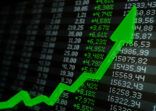Hyde Chen, Haitong International
Prices of Chinese fixed income, especially real estate high-yield bonds, sank to new lows last year, as the Beijing government imposed strict regulations on several industrial sectors, ranging from technology to property.
But with the effects of policy loosening becoming apparent, Haitong International Asset Management told its market outlook media briefing that “things would start to change in 2022”.
“We believe the current price and yields, especially of real estate high-yield bonds, have taken into account most of the negative factors including the broader slowdown of China’s real estate sector, major defaults and refinancing risks,” said Hyde Chen, head of investment strategy of asset management, managing director at Haitong International.
Chen believes that Chinese bonds are generally undervalued now, as many of the Chinese high yield dollar bonds are trading in the 20-40s [percentage of par value] after many property developers defaulted last year, while some investment grade names also were hit by the spill over of the crisis.
Nonetheless, he admits that the fundamentals of the Chinese property sector may weaken further in the next six months and developers’ liquidity conditions would remain tight due to the drastic slowdown in contracted sales.
In 2022, Chen expects some individual companies may still default on their bonds, bringing volatility to the market, but as developers refinance their existing debts, market sentiment will improve in the long run.
Passive investing in equities
With the momentum of global economic growth remaining strong and the impacts of the Covid-19 pandemic gradually fading, the asset manager believes stocks will continue to outperform in 2022.
In particular, companies in the Eurozone and Japan could catch up with the performance of US stocks, said Chen.
“[However], as an investor based in Hong Kong or China, it is difficult to identify a single company in these two economies. It is more practical for investors to invest through an ETF when allocating their assets in these two locations, instead of picking a single security,” he said.
As domestic growth in both regions is relatively weak compared with the US, Chen prefers cyclical companies and those that are more exposed to global growth because they are likely to benefit from the resolution of global supply chain challenges and corporate inventory replenishment.
In the US, Haitong expects US stocks prices will continue to gain on the steady recovery of the global economy and strong household consumption.

















